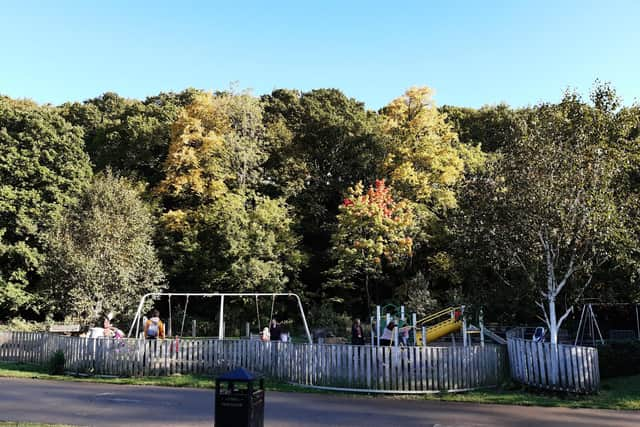Sheffield park set to be hit by tree removal
and live on Freeview channel 276
Endcliffe Park will be transformed by felling and lopping due to ‘ash dieback’.
The devastating fungus causes ash trees to lose leaves and twigs and unpredictably drop large branches.
Advertisement
Hide AdAdvertisement
Hide AdThe disease has swept the country since it was first detected in 2012. The warm, dry spring has exacerbated the problem.


It has killed up to 85 per cent of trees in Northern Europe. Sheffield City Council says about 90 per cent of the city’s ashtrees are expected to die. It is home to some 253,000 ash trees and could lose up to 215,000.
Now, the forestry team at Sheffield City Council intends to work throughout October and November to make Endcliffe Park safe.
There are scores of ash trees in the park, next to and overhanging almost all the roads and paths and the playground.
Advertisement
Hide AdAdvertisement
Hide AdSome are very large and some already appear to be showing signs of dieback.
A council spokeswoman said: “A total of 33 ash dieback affected trees will be removed across site. All of these ash trees are badly affected with the disease and are in severe decline. There are a small number of mature ash to be removed, but the vast majority are young or early mature trees. Our general policy for replacing trees is on a two for one basis, and replacement trees will be planted where practicable in Endcliffe Park. Trees removed from grass and amenity areas will be replaced by a mix of species suitable for the location. Woodland and woodland edge trees will be replaced by natural regeneration.
“Preventative action now is essential to restore and protect the city’s existing and future ashpopulation.”
Ash dieback, triggered by a fungus called Hymenoscyphus fraxineus, shuts down tubes in the trunk that the trees use to transport water and nutrients.
Advertisement
Hide AdAdvertisement
Hide AdAsh trees are one of the UK's most abundant tree species, and studies suggest the dieback disease is going to cost the UK economy billions of pounds.
Last week, the National Trust said it had experienced the worst year on record for ash dieback on its estates.
The charity says it will have to spend £2m on felling infected trees this year - four times more than the average cost of felling trees.